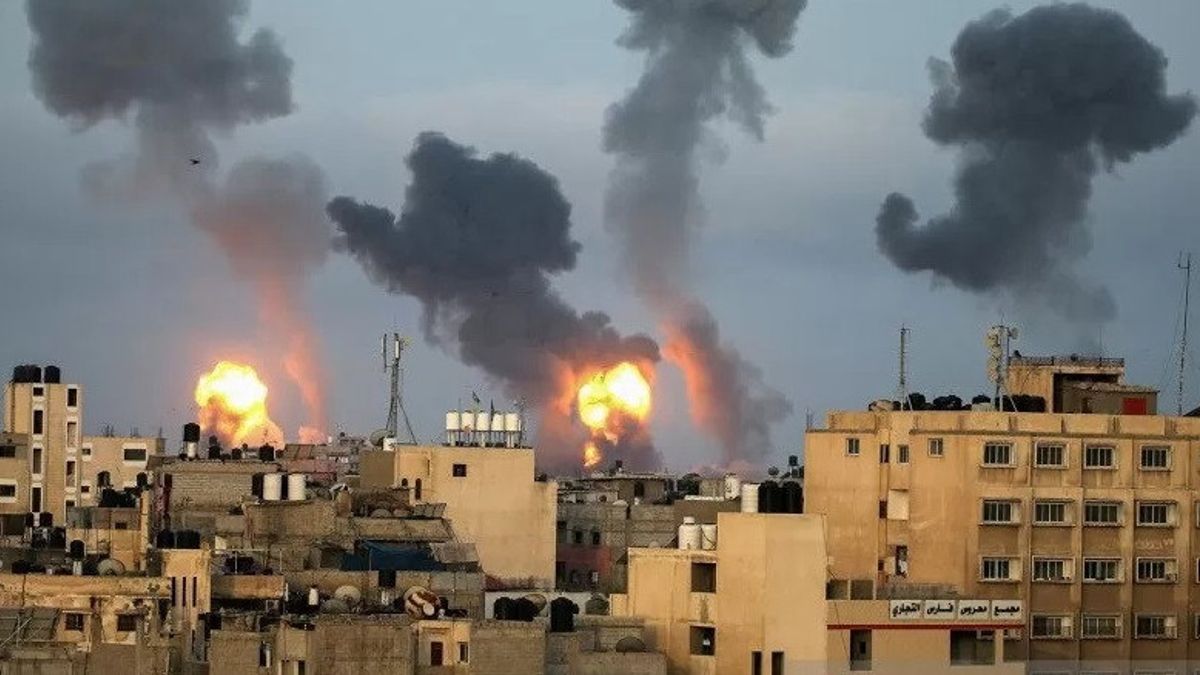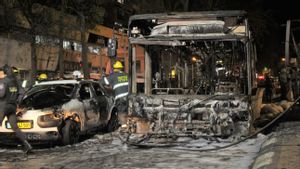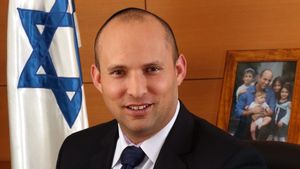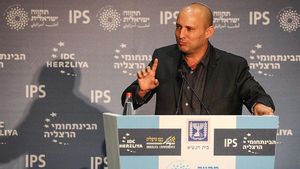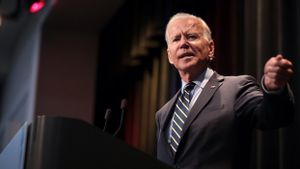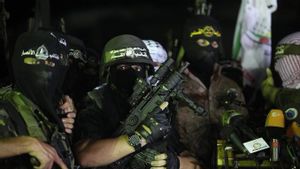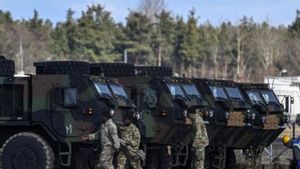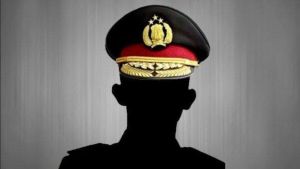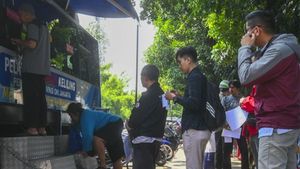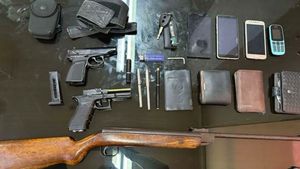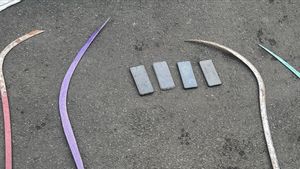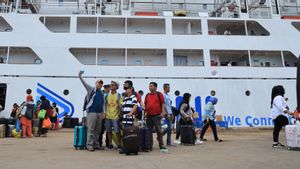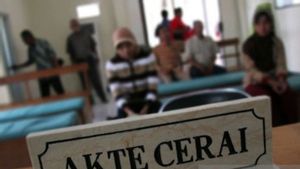JAKARTA - The Israeli military confirmed that it had carried out airstrikes on Gaza, Palestine, in response to incendiary balloons launched at Israel earlier on Tuesday, June 15 yesterday.
The balloons caused at least 10 fires in southern Israel, after hundreds of Israeli ultra-nationalists marched in east Jerusalem in a show of force, potentially leading to new clashes after a recent ceasefire agreement.
The march is a test of Israel's fragile new government, as well as the weak truce that ended last month's 11-day war between Israel and Hamas.
Palestinians regard the annual march, meant to celebrate Israel's conquest of East Jerusalem in 1967, as a provocation. Hamas called on Palestinians to oppose the parade.
With music booming, hundreds of Jewish nationalists gathered and marched in front of the Damascus Gate. Most looked like young men, and many held up the blue-and-white Israeli flag as they danced and sang religious songs.
At one point, several dozen youths, jumping up and waving in the air, shouted: "Death to the Arabs!". In another anti-Arab chant, they shouted: "May your village burn".
In a scathing tweet on Twitter, Israeli Foreign Minister Yair Lapid said those who shouted racist slogans were a disgrace to the Israeli people.
"The fact that there are radicals whose Israeli flag represents hatred and racism is heinous and unforgivable," he said, as quoted by ITV, Wednesday, June 16.
From the Damascus Gate, they walked around the Old City to the Western Wall, the holiest place where Jews could pray. Ahead of the march, Israeli police cleared the area in front of the Damascus Gate, closed roads to traffic, ordered shops to close, and evict young Palestinian protesters.
Police said officers arrested 17 people suspected of involvement in the violence, some of whom threw stones and attacked police, and two police officers needed medical treatment. Meanwhile, Palestinians said five people were injured in clashes with police.
The parade provided an initial challenge to newly appointed Israeli Prime Minister Naftali Bennett, a hardline Israeli nationalist who has promised a pragmatic approach as he leads a diverse and refined coalition government.
Despite fears, the march will escalate tensions, canceling it would open Bennett and other members of the far-right coalition to harsh criticism from those who would see it as a surrender to Hamas.
Mansour Abbas, with his Raam party as the first Arab faction to join the Israeli coalition, said the march was an attempt to set fire to the region for political purposes, intending to undermine the new government.
"The police and the minister of public security should cancel the event. I call on all parties not to be dragged into an escalation and maintain maximum self-control," Abbas said.
In recent years, marches have passed through the Damascus Gate and into the heart of the Muslim Quarter, a bustling Palestinian neighborhood with narrow streets and alleys. But police changed routes on Tuesday to avoid the area.
Instead, the route loops around the ancient walls of the Old City and through the Jaffa Gate, the main thoroughfare for tourists, and into the Jewish Quarter and the Western Wall, the holiest places where Jews can pray.
Separately, Hamas called on Palestinians to show courageous resistance to the march. They urge the people to gather in the Old City and in the Al-Aqsa Mosque, rise up to face the invaders and fight against it by all means to stop its evil and arrogance.”
In the afternoon, Palestinians linked to Hamas launched several incendiary balloons from Gaza, setting off at least 10 fires in southern Israel, according to Israel's national fire department.
Prime Minister Mohammad Shtayyeh, of the internationally-backed Palestinian Authority in the West Bank, called the march aggression against the Palestinian people.
SEE ALSO:
Israeli media reported the military was on high alert in the occupied West Bank and along the Gaza border. Batteries of Israel's Iron Dome rocket defense system were seen deployed near the southern city of Netivot, near the Gaza border, as a precaution.
Meanwhile, deputy UN spokesman Farhan Haq said UN officials had urged all parties to avoid provocations, to strengthen the informal ceasefire that ended the Gaza war.
Gaza tonight pic.twitter.com/2iwp09R1js
— Muhammad Smiry (@MuhammadSmiry) June 15, 2021
The English, Chinese, Japanese, Arabic, and French versions are automatically generated by the AI. So there may still be inaccuracies in translating, please always see Indonesian as our main language. (system supported by DigitalSiber.id)
